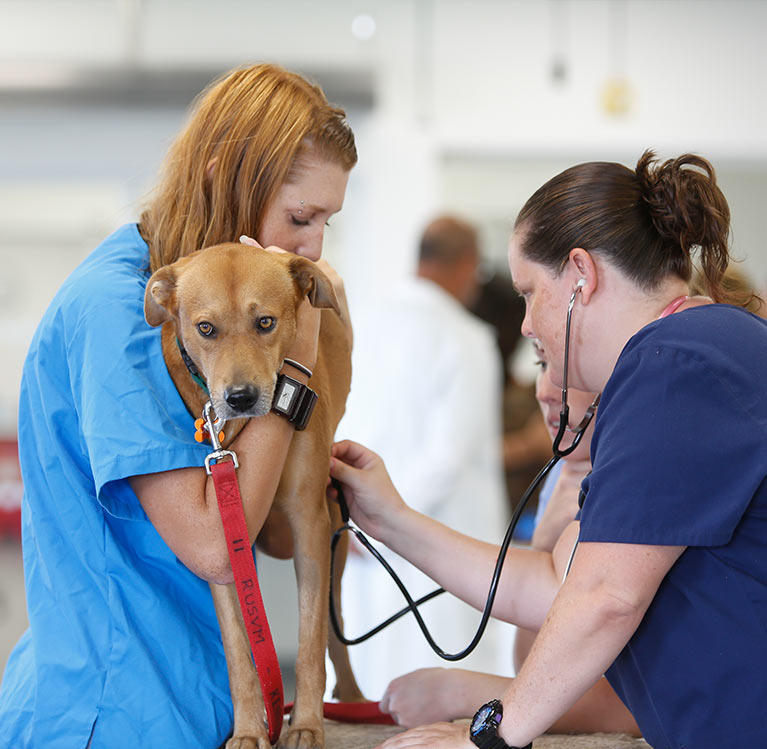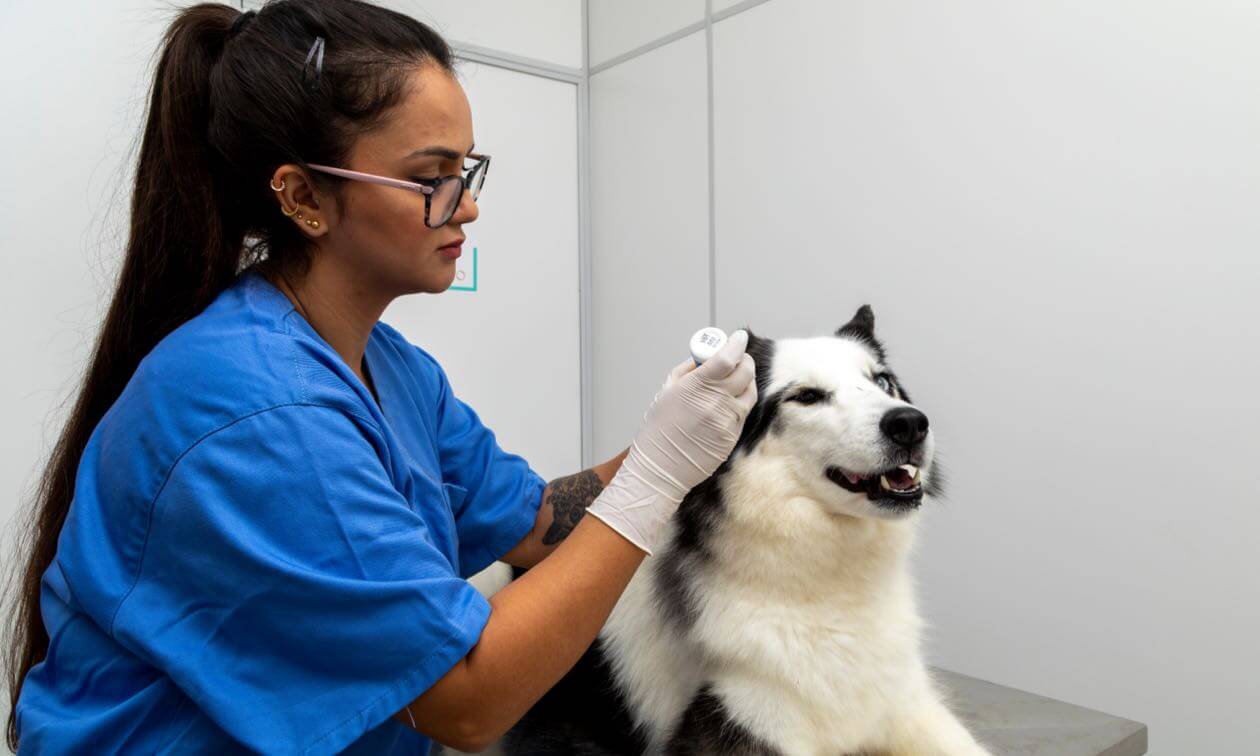What to Expect During a Thorough Pet Health Checkup at Your Regional Vet
What to Expect During a Thorough Pet Health Checkup at Your Regional Vet
Blog Article
Vaccination Standards From Your Relied On Veterinarian
Inoculation guidelines offered by your trusted vet play a vital duty in guarding your pet's health and wellness and health. Core vaccines are essential for all animals, while non-core vaccinations can be tailored to particular way of livings and environmental exposures. Comprehending the subtleties of vaccination schedules, which start as early as 6 to 8 weeks, is important for optimum security. Furthermore, resolving common mistaken beliefs bordering vaccinations can better enhance pet dog proprietors' self-confidence in these preventive actions. As we explore these important facets, it becomes increasingly clear why routine assessments with your veterinarian are important for informed decision-making.

Importance of Vaccinations
Vaccinations play a crucial duty in protecting animals against a variety of preventable conditions. By boosting the body immune system to recognize and battle certain microorganisms, vaccinations substantially decrease the incidence of transmittable conditions that can affect a family pet's health and wellness and long life. Not only do inoculations safeguard private pets, but they likewise add to herd resistance, consequently decreasing the general occurrence of conditions in the family pet populace.
Timely inoculations assist to minimize the spread of diseases such as rabies, parvovirus, and distemper, which can have serious repercussions for both pets and humans. Furthermore, vaccinations are frequently a requirement for boarding centers, brushing solutions, and canine parks, making them important for those who want to socialize their family pets.

Core Injections for Pet Dogs
While the particular inoculation requirements of family pets can vary based on specific variables, core vaccinations are universally suggested to shield versus one of the most typical and major diseases (Vet Enterprise). Core vaccines are those deemed necessary for all pet dogs, despite their way of living or geographic area, as they protect against potentially deadly and extremely infectious illnesses
For dogs, the core vaccinations include those for canine distemper, parvovirus, adenovirus (liver disease), and rabies. Canine distemper is a viral condition that impacts the respiratory system, intestinal, and nerve systems. Parvovirus is understood for triggering extreme stomach disease, specifically in puppies. Adenovirus can result in liver illness, while rabies is a zoonotic disease that presents a threat to both pets and people.
In cats, core vaccines incorporate feline panleukopenia, feline calicivirus, feline herpesvirus (rhinotracheitis), and rabies. Feline panleukopenia is a highly contagious viral condition that influences the immune system and intestinal tracts. Calicivirus and herpesvirus are major factors to top respiratory system infections in cats, while rabies continues to be a vital issue for public health and wellness.
Talk to your vet to guarantee your pet dogs obtain their core vaccinations on schedule.
Non-Core Vaccines Explained
Non-core vaccinations are customized to deal with details threats related to an animal's environment, way of living, and direct exposure to specific illness. Unlike core vaccines, which are globally recommended for all family pets, non-core vaccinations are taken into consideration based on individual situations. These vaccines are especially crucial for animals that may experience one-of-a-kind microorganisms due to their geographical place, traveling routines, or tasks.
Instances of non-core vaccines consist of those for Bordetella bronchiseptica, which is linked to kennel cough, and Lyme illness, caused by ticks. Animals that regularly interact with various other animals, such as those in boarding centers, dog parks, or brushing atmospheres, might take advantage of Bordetella inoculation. If you live in a location where Lyme illness is common, helpful site vaccinating versus this condition can be a prudent selection for outdoor-loving pet dogs.
Various other non-core vaccinations might consist of those for leptospirosis, canine flu, and feline leukemia, depending on the specific danger aspects present. It is vital to have a complete conversation with your vet about your family pet's way of living and the prospective need for these vaccines, making certain a tailored vaccination approach that best shields your hairy close friend.
Vaccination Schedule Introduction

As pet dogs grow, it is essential to follow the recommended booster inoculations. Veterinarian Enterprise. For grown-up animals, core injections are typically provided each to 3 years, relying on the specific vaccination and local guidelines. Non-core vaccines might be suggested based upon way of life aspects and regional disease occurrence, necessitating a customized method
Regular vet check-ups are critical for upgrading vaccination schedules. Your veterinarian can supply support on one of the most proper immunizations for your animal, factoring in age, health condition, and environmental dangers. By remaining aggressive and informed, family pet owners can ensure their furry companions obtain effective and timely inoculations, therefore securing their health and well-being throughout their lives.
Typical Myths About Vaccinations
False impressions concerning animal inoculations can cause complication and unwillingness among pet proprietors concerning the booster shot process. One widespread myth is that vaccinations are unnecessary for indoor family pets. While it's true that indoor family pets face lower dangers, they are not completely immune to conditions, as microorganisms can be introduced with numerous methods, including human apparel and various other family pets.
Another false impression is that vaccinations can cause the conditions they aim to avoid. In truth, the majority of injections contain suspended or attenuated virus, which can not trigger illness in healthy pets. Some animal owners also believe advice that their pet dogs must not be vaccinated if they are already healthy and balanced; nonetheless, vaccinations are a positive action that helps prevent the beginning of illness.
Furthermore, numerous pet proprietors fear that injections will lead to long-lasting wellness issues. The advantages of inoculation-- securing pet dogs from possibly dangerous conditions-- much outweigh the threats.
Final Thought
In recap, adherence to inoculation guidelines is crucial for making browse around here sure the health and durability of pets. Eliminating typical misconceptions bordering vaccinations better reinforces the relevance of informed decision-making in animal care.
Not only do vaccinations secure specific pets, but they also add to herd immunity, thereby minimizing the total frequency of diseases in the family pet populace.
Misconceptions regarding pet vaccinations can lead to complication and reluctance amongst family pet owners pertaining to the booster shot procedure. While it's real that interior pets encounter reduced dangers, they are not entirely immune to illness, as pathogens can be presented with numerous methods, including human clothes and other pets.
Some pet proprietors additionally believe that their pet dogs must not be immunized if they are already healthy; nonetheless, vaccinations are a positive measure that assists stop the onset of illness.
The benefits of vaccination-- shielding animals from possibly serious diseases-- much surpass the dangers.
Report this page